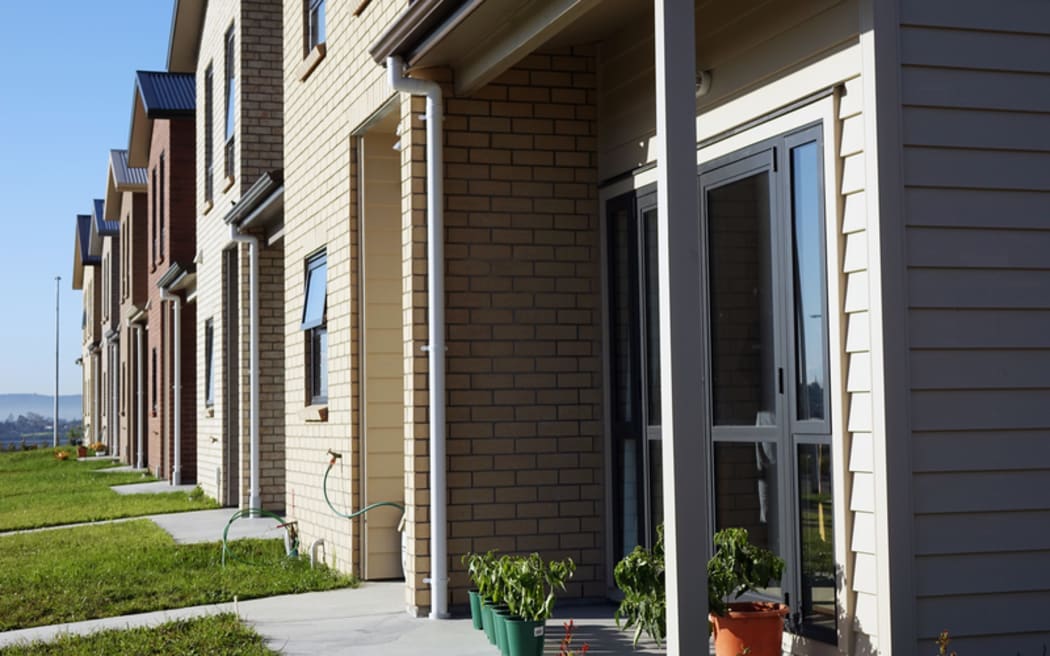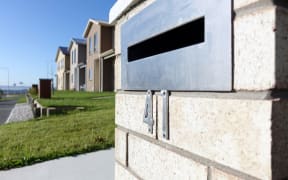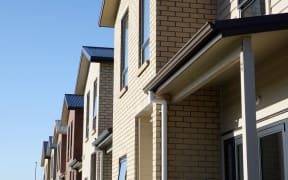ANALYSIS: Should current residents or those of the future determine what happens when it comes to the city's higher-density development, asks Todd Niall.

Photo: RNZ / Kim Baker Wilson
Residents' passion about their neighbourhoods, and politicians desire to be seen to be in step with their constituents have fused together in renewed debate over plans to increase housing density in Auckland.
Nearly 700 people turned up in Kohimarama last week to hear the lobby group Auckland 2040's take on how the Auckland Council's upgraded views on future density, might affect the wealthier eastern suburbs.
The prevailing mood was anger or frustration at what they considered to be their suburbs' unequal share of the proposed intensification across Auckland.
At the same time almost half of the 20-member council have expressed misgivings over, or vocal opposition to, the beefed-up case for higher-density development which the council will push for in April.
The debate and political anxiety comes as the deliberations near the end - the 30-year development blueprint for Auckland, the Unitary Plan, is due to be finalised by September.
It will eventually reshape much of Auckland's residential landscape, with more of it looking increasingly city-like and less suburban - more multi-level and less like any other New Zealand city.
The heightened discussion poses a challenge for Auckland councillors. Should they heed the cries of the loudest of their constituents, or the ambitions of the quietest?
In short, who should have the dominant voice in shaping the future Auckland ?
The plan proposed by the council in September 2013 is now before an independent panel - a form of judicial tribunal - which weighs up arguments including those advanced by the council.
A key aspect of the plan is how to accommodate the additional million people who will call Auckland home by 2041, and contain 60 -70 per cent of that growth within urban boundaries.
Since the council's 2013 proposals, collaborative work run by the panel has determined that level of intensification won't provide enough viable housing capacity for growth.
The council reworked its thinking and in December released the revised case it will put to the panel, proposing higher density, mainly in central areas and those on good public transport routes.
This plan more closely resembled the view which a majority of councillors watered down as they signed-off the proposed Unitary Plan at their final meeting, weeks out from the 2013 local body elections.
The biggest change was to expand the Mixed Housing Urban Zone, which allows higher density housing up of to three storeys in nearly 17 percent of residential Auckland areas rather than the almost 11 percent previously proposed.
That revelation in December started the ground rumblin again in the more central suburbs and at council HQ.
Nine councillors signed a letter arguing property owners affected by the proposed new upzoning should be allowed to make submissions to the Independent Panel. The mayor Len Brown ruled the call out-of-order.
Chair of the independent panel Judge David Kirkpatrick declined a seperate, similar appeal to the panel.
In simple terms, he argued the panel could still make whatever final recommendation it chose, regardless of whichever position the council, or any other submitter argued.
The new debate has yet to address the question of whether the views of existing residents should hold more weight in long-term decisions about an Auckland in which future generations will live.
It's something the Productivity Commision called a "democratic deficit" in it's report on Using Land for Housing.
"Homeowners exert disproportionate influence over council decision-making, often to conservative effect, as they seek to protect the value of their property," it observed.
Higher density housing is seen as crucial to produce more affordable housing in a city where the median house price is equivalent to ten times the median household income.
Density impacts not only this year's owners and voters, but those 10 and 20 years in to the future, posing a challenge to this year's politicians.
The youth organisation Generation Zero will take part in the hearings on zoning, supporting higher density closer to centres and public transport as a way to make home ownership more achievable.
"Any policy should be enabling this kind of development rather than pushing young people out to the urban fringe," said its spokesperson Niko Elsen.
Auckland councillors will be aware they have each personally endorsed the council's strategy for the under-25s, "am Auckland".
"All our plans and projects are about keeping them here in Auckland, and building a first-class city," wrote Cameron Brewer, the ward councillor for Orakei, which hosted the Kohimarama meeting.
The councillors unhappy at the latest density plan have yet to decide whether to seek a new vote that might force the council to return to the lower-density 2013 version of the Unitary Plan.
Regardless of that, when the Independent Hearings Panel sends them it final recommendations on the entire plan in July and asks them to accept or decline it, they will need to consider whose interests to heed.




